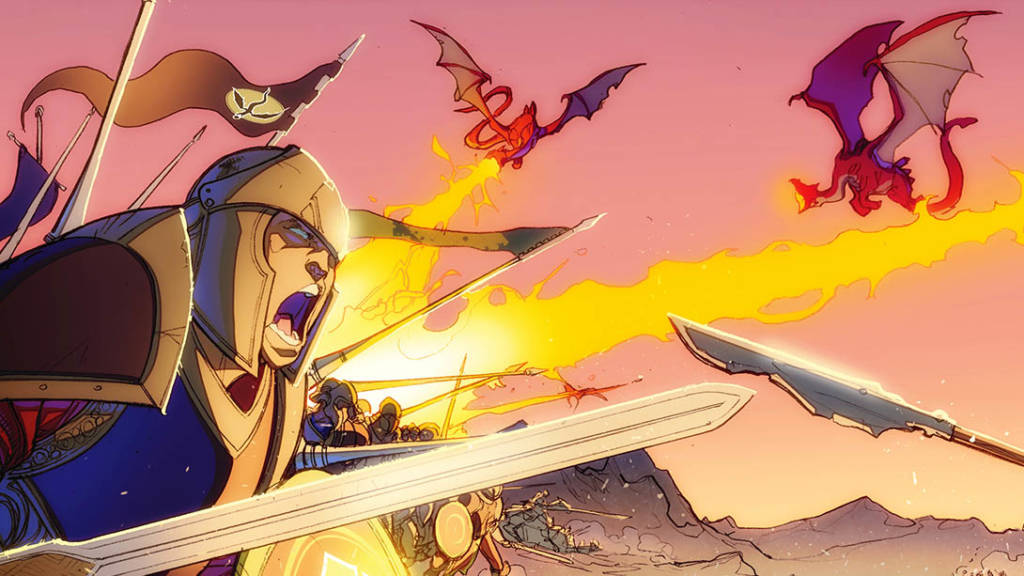It’s been over 40 years since Gary Gygax and Dave Arneson first brought the Dungeons & Dragons pen-and-paper, role-playing game into the world, which would go on to influence pop culture, spark controversy and eventually inspire video games. The IP was acquired by Wizards of the Coast in 1997 and it remains a cornerstone of “geek” entertainment around the world, with gameplay sessions broadcast on Twitch.

The game has gone through several rule changes in its extensive history, and despite efforts by dedicated fans, it’s been slow to move past its pen-and-paper roots to enter the digital age. That’s when Curse stepped in.
The gaming-site network partnered with Wizards of the Coast to launch D&D Beyond in July, a website and platform that fully digitizes all the classic role-playing game’s rules, modules and tools. There, players can read the books, socialize, create characters and spells and develop campaigns. Basic features are free, with expanded content available for purchase individually or accessible via subscription.
“D&D Beyond is a Dungeons & Dragons destination, with an official digital toolset for the fifth edition rules and original content focused on telling the story of D&D,” Adam Bradford, Curse’s senior product manager, told AListDaily.
Bradford said that the gaming platform started as an internal passion project when he joined the company last year, and it coincided with the company’s plan to expand from video games into other types of gaming. Being a longtime fan of D&D, Bradford eventually started a campaign in the office and the project took on a life of its own. Curse then approached Wizards of the Coast with a proof of concept and a 30-second trailer, and the publisher, recognizing the demand for digital tools, quickly jumped on board.
“We’ve gotten off to a solid start so far by partnering closely with Wizards of the Coast in broadcasting the message through their official channels and relying on the organic reach of our early adopters,” said Bradford. “Going forward, awareness will spread through the rising popularity of D&D streaming and many of those popular gaming groups using D&D Beyond during their sessions. We also have plans to support organized play with the Adventurer’s League at conventions and events in 2018.”
Although some pen-and-paper purists might not take to the idea of using digital tools, the platform has worked to significantly increase engagement with the classic franchise and bring on new players.
“Our early data indicates engagement has increased,” said Bradford. “D&D Beyond is a major boon for new players, and new players are coming to D&D in surprisingly high numbers. It’s there to ease them into the game.”
Bradford also said that players now understand the value of using D&D Beyond at the table to enhance the gameplay experience and make gameplay management easier. The digital tools help prevent the disruptive practice of having to stop the game to check a rule so that players can dedicate themselves to telling immersive stories.
Although D&D Beyond is still a relatively new platform, Bradford says that plans are already underway to expand it.
“We have an extensive roadmap of features, beginning with character builder improvements, a mobile app, additional homebrew options and moving to Twitch stream integration, encounter/ monster building and combat tracking further down the road,” he said. “There are literally thousands of things that we plan to work on to improve the value of the toolset over time.”
Bradford also explained the ongoing attraction of pen-and-paper games when there are so many fantasy-themed video games available, some directly tied to Dungeons & Dragons.
“I love video games, and my first role-playing game experience was The Legend of Zelda when I was five,” said Bradford. “That said, no matter how ‘open’ a video game claims to be, you’ll still eventually hit the edge of the map or feel limited in some other way . . . The most compelling thing about Dungeons & Dragons for me is enjoying structured make-believe with friends. Technology is at its best when it enhances human interaction, not when it overshadows it. If digital tools can make that better without removing that interaction, they succeed. Striking that balance is a priority for D&D Beyond going forward.”
Dungeons & Dragons has been around for 43 years, and Bradford shared his thoughts about how the franchise continues to engage players to perhaps keep it around for 40 more.
“Dungeons & Dragons succeeds because it taps into our innate need as humans to tell stories,” said Bradford. “We all want to be part of a story—great movies, books and other entertainment can take us alongside a story, but rarely do we actually feel like a part of it. D&D is a game where we become the main characters in an epic story, and it’s hard to beat that.

